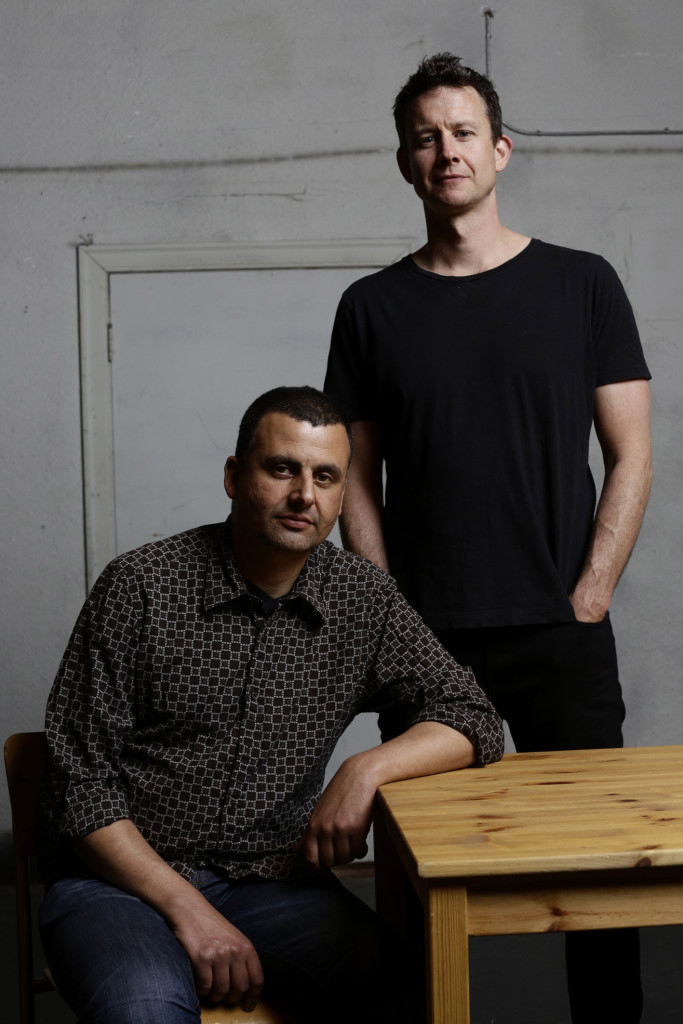
I saw “Winners & Losers” a few years ago at the downtown SFU campus. I remember being struck by how I had never seen anything that real in Vancouver before. The show was a pop culture explosion. It was the first time I had seen race addressed on a local stage. It was biting and witty. And best of all, it was expertly written. Afterwards I sifted through the internet, looking for more information on the play and its creators, but had little success. Fast forward to present day. I hear that “Winners & Losers” is coming to the Cultch on Feb. 16 and I punch the air with triumph! James Long and Marcus Youssef are RL, lifelong friends who sit at a long table in “Winners & Losers” and ask some very loaded questions. Actors and creators, Youssef and Long, have taken the show to various cities in North America and Europe. They have received rave reviews from major publications and stirred audiences in their wake. The staging that I attended had a talk back session. It was dominated by an older Middle-Eastern gentleman in the audience, whom no one could get a word past. So moved was he. Marcus Youssef, who is also the artistic director of Neworld Theatre, talked to us about the origins of this evocative, political play, and the unconventional trajectory of his own multi-faceted career.
Did you and James Long write “Winners & Losers” together? How did the idea for come about?
We made the show together. Couple of things happened. First, five years ago, we were assigned to co-create a show for the Caravan Farm Theatre in Armstrong and we found out that we like working together. At that point we had known each other for a long time but never worked together. Second, a friend of ours had sent out a mass email to all his friends about a self-help pyramid scheme. It was about how he had found this new program to help him finally become happy because he had been miserable for a while. This was a really good friend of ours who was quite successful, owned a home, had a great wife, a kid. As guys in our late 30s and early 40s, he got us thinking about what success and failure really meant. That’s where this conversation about winning and losing started. How it is productive sometimes and destructive at others.
We started out with a game. Name a person, a place or a thing and classify it as a winner or a loser. Then we moved on to attributes like parenting or friend or lover. We recorded and transcribed those improvs. When we went back and read them we realised they were really funny, inherently dramatic and competitive. It was also remarkable just how mean they got. We used those transcripts as raw material. Then we made decisions about central themes, the shape and the integration of the improvs and the script.
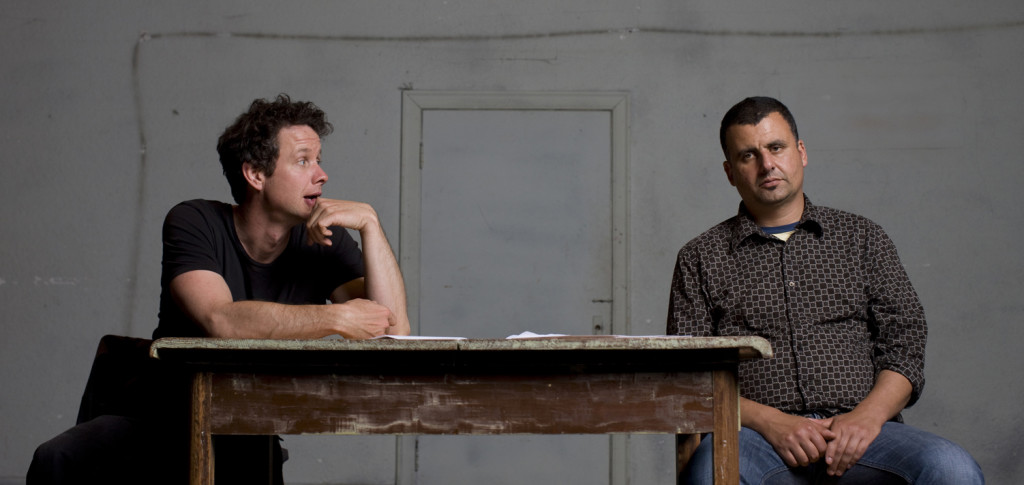
Did the show change your friendship? Did it make your friendship stronger?
We certainly know each other better. It is easier to debate if Pam Anderson is a winner or a loser but if it is my father or Jamie, it becomes a much more difficult proposition. In the early stages of the show, there were times when one of us would walk off stage angry or hurt, for real. But having gone through that process we are much closer than we would have been otherwise.
Your other works also stem from personal stories. The honesty of your work is really striking. How are you so comfortable being honest with yourself?
My wife calls it my mid-life crisis stage. I am currently making a lot of very personal work featuring characters that are people’s real life personas. I am a kind of compulsive confessor. I think ruthless honesty and radical transparency are really critical for me. I am engaged by any art that practices radical admission of things that we don’t feel comfortable admitting in public. That honesty is also at the heart of a lot of humour.
Has the play evolved since its conception?
Fundamentally it’s the same but it changes a little wherever we perform it. If you remember, the show turns on the fact that I live in a house and Jamie lives in a condo- addressing the whole Vancouver housing issue. Well, Jamie now lives in a suburban house worth quite a bit of money. That is something we ignored when we were in other places because nobody knew us, but here we’re going to have to deal with it.
I would also argue that the #BlackLivesMatter movement in the States, and the re-emergence of inclusion and race as hot-button political issues, have affected the show. We made a very conscious choice years ago to not engage with race, and in my otherness as a middle-eastern Canadian. I have explored those issues in my previous works a lot. In this show we were more interested in the class question. But given the way things have changed culturally of late, race now features more directly in our competition with each other.
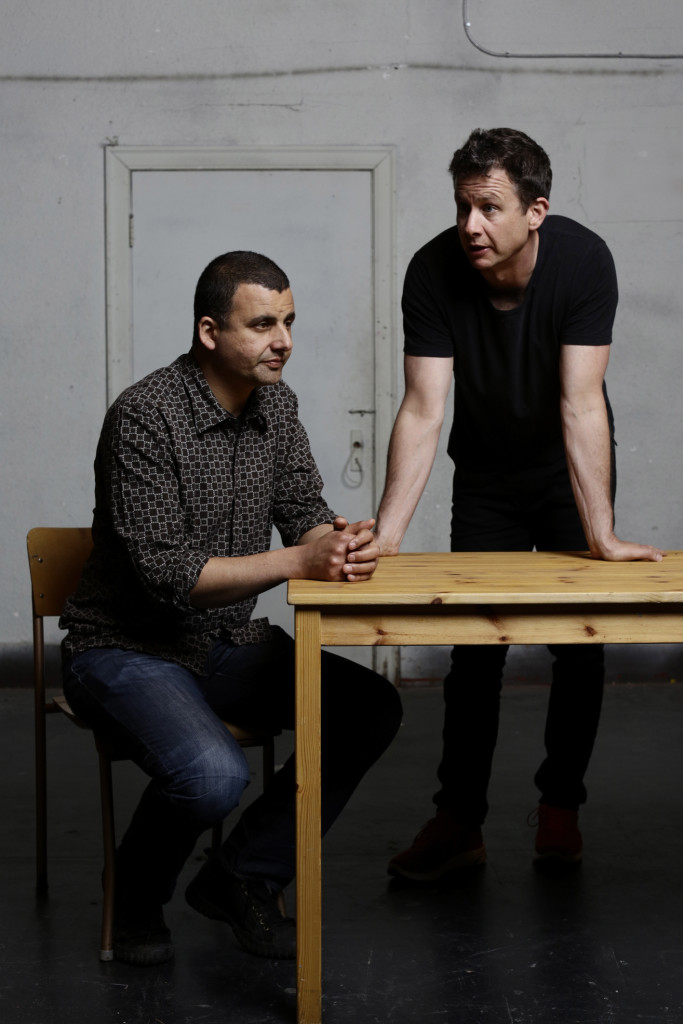
Can we expect similar explorations of topics like class and race at Neworld?
Our vision at Neworld has always been to explore questions that are sanitised in the mainstream or ignored in mainstream culture production. Our work is quite marginal but our marginality gives us tremendous freedom to say things, and ask questions that the mainstream doesn’t have the opportunity to ask.
From producing a West Coast premiere of “My Name is Rachel Corrie” in 2008, to making the first professional show in Canada co-created by someone with Down’s Syndrome, to a war-on-terror satire long before it was cool to oppose the war in Iraq. Our unconventionality has always been central to our identity.
Is being political a very important part of your work?
It is a reflection of who I am. I’m a politics junkie. I was the kid who would get under the school bus in grade 5 with a copy of the newspaper. I’ve even been active in municipal politics. My aim is to make political art that is not that horrible thing where somebody is yelling at you and telling you what to think. We want to make political art that is funny and surprising. Political art that is human and acknowledges the many contradictions that exist in all of us, no matter what our politics.
You mention that collaborations are important to you. How do you think they enhance your art?
There are many artists who are absolutely not collaborative. They are driven by a singular kind of vision. And that’s a good thing. Maybe it is because I’m a bicultural kid of divorced parents. I get attracted to other artists. I like figuring out where the other artist’s practice and my practice meet or where they conflict. I try to follow those impulses mostly because they just feel good.
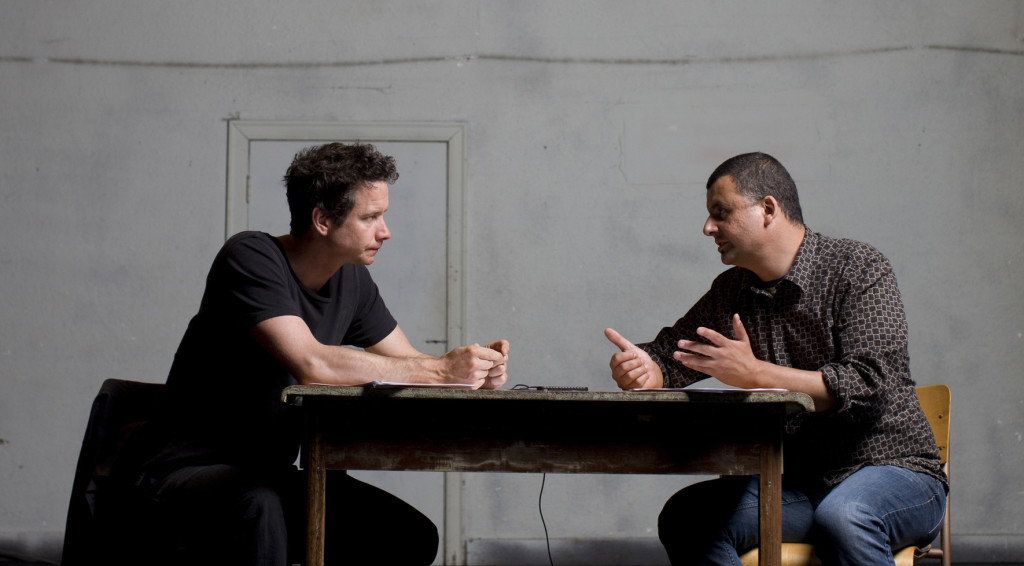
Which is the most unexpected collaboration you’ve done?
I think it was with my good friend Niall McNeil who is an actor and someone whose life experience includes Down’s Syndrome. When he and I were asked to co-create a show I didn’t expect it to be among my proudest creative experiences. We made a show for the PuSh festival in 2011 called “Peter Panties”. Niall’s vision illuminated things for me that I never expected. It was a profound learning experience about inclusion, perspective and experience.
What do you think we could use more of in the Vancouver theatre scene?
Vancouver is more of an event-based place. The PuSh festival has done a great job at making performance a cool thing to do. What we don’t have here are cool, sexy venues regularly producing work. We have the Cultch, which is awesome. At Neworld, we share a production space with Electric Company, Boca del Lupo and Rumble, called Progress Lab. If we had a shared venue it would be awesome. It would physically locate avant-garde, political work in one building. Like St. Ann’s warehouse in New York or something.
Are you working on anything else at the moment?
There is a play for teenagers called “Jabber”. It’s about a Muslim immigrant girl, in grade 11 who wears hijab in a school where nobody else does. It was showcased at the International Performing Arts for Youth conference in Montréal. It’s been touring for two or three years. I’m hopeful that it will go on a big US and international tour. I’m also making a show with Niall and Jamie titled “King Arthur”, which is a commission for the Luminato festival in Toronto. There is also a project about my family and the Egyptian revolution on the way.
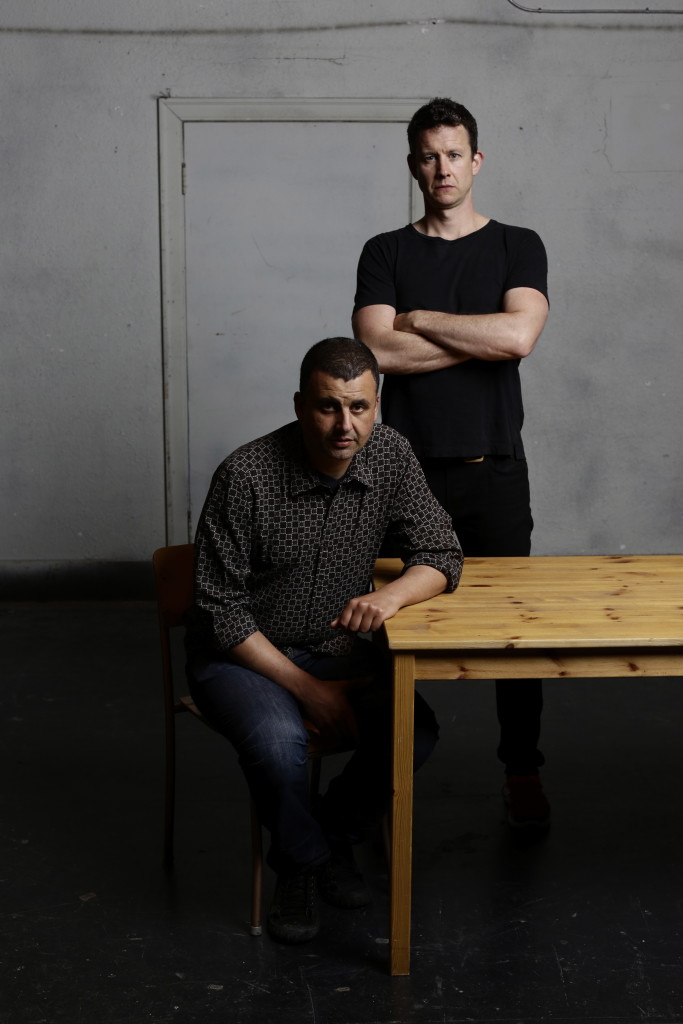
“Winners & Losers” is about social inequality. Do you think equality is achievable? Or is inequality something that we have to learn to live with?
I mean who am I? I’m just some guy. I think there’s nothing in human history that suggests that one day everyone will be equal. That said, great social movements have originated from people’s belief in possibility. The contradiction between those two thoughts is, for me, what it means to be human.
Making “Winners & Losers” was an attempt to create a space in which people can have a good time but also have an encounter with truth. I read recently that when Susan Sontag was staging “Waiting for Godot” in Sarajevo, in the middle of the war, somebody asked her why Yugoslavs would go see this bleak existential play. And she said, “because some people find comfort in the unhappy circumstances of their lives being represented and not being denied”. When I see someone being honest about the terrible things happening to them, I feel comforted. That’s what we want to give our audiences through our work.
Don’t miss the chance to see “Winners & Losers” at the Cultch starting Feb. 16th. Get your tickets here!
-Prachi Kamble
